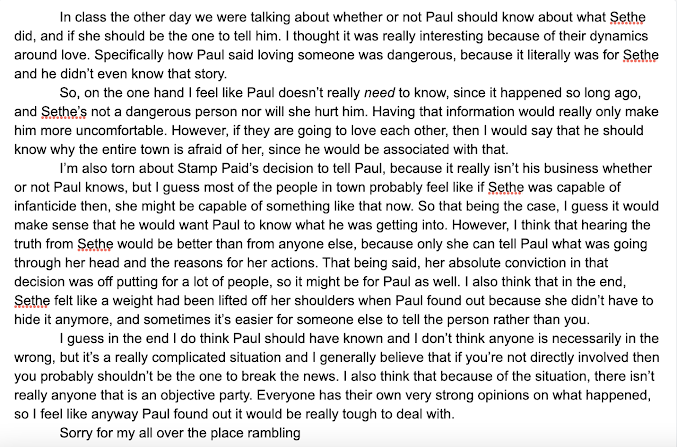Janie’s relationships have each taught her really important lessons, but unfortunately mostly through mostly negative experiences. Even though we don’t really see most of her relationship with Logan (there isn’t really much to show), it is clear that Janie doesn’t feel fully comfortable with him, and also feels like she isn’t getting the respect she deserves. Despite her gut feeling to not marry him, Janie submitted to the pressure she felt from her grandmother and married Logan. She quickly learned that was a bad idea, and freed herself by walking away and marrying another man. I thought it was interesting how she wasn’t sure Joe would be waiting for her and would have a very uncertain future if he weren’t waiting, yet she knew that whatever happened when she left would be better than staying with Logan. Through this relationship she realized that she was the only person who could dictate who she loved and married. While marrying Joe was her choice, in a way their marriage was so...

